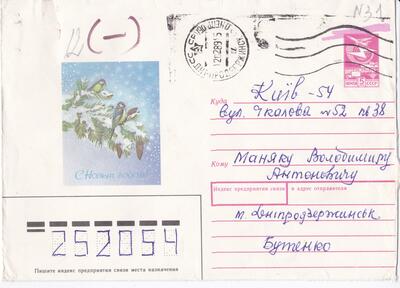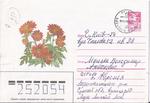Letter sent from: Dniprodzerzhynsk, Dnipropetrovsk oblast
Letter describes events in 1932-1933 in: Dniprodzerzhynsk, Dnipropetrovsk oblast
Current location name: Kamianske, Dnipropetrovsk oblast
Butenko lived and worked in Dniprodzerzhynsk, now Kamianske. He addresses the issue of denial and its
lasting legacy.
He was given a ration of 400 gm of bread per workday, so he was not in danger of dying of starvation. But he
witnessed people dying in the street: an adult male and some women with children. Swollen, ulcerated legs.
Some who still had strength dared to ambush people who were getting bread from a store and steal some
from them. They were chased and often caught and beaten. Even as they fell to the ground they would be
trying to bite and swallow some bread. The only thing that local authorities did for the dying was removing
corpses from the streets. Urban residents ignored the dying, too, because “they had nothing they could give
them.”
He remembers the striking contract between Komunist publishing a TARS (TASS in Russian, official news agency of the Soviet Union) rebuttal of news in the Polish press that there was a famine in Ukraine and people were dying on the streets in front of the reporters’ own eyes. He also mentions a man from Leningrad he met on a train, who told him that they had all the food they needed at the time: eggs, white bread, cakes and sausages, and did not know anything about the famine in Ukraine. One of his colleagues at work said that in the late 1960s when she told her teenage son about the famine in Ukraine, the son accused her of lying. Butenko is a veteran of war and labor.
Ukrainian transcription available.



